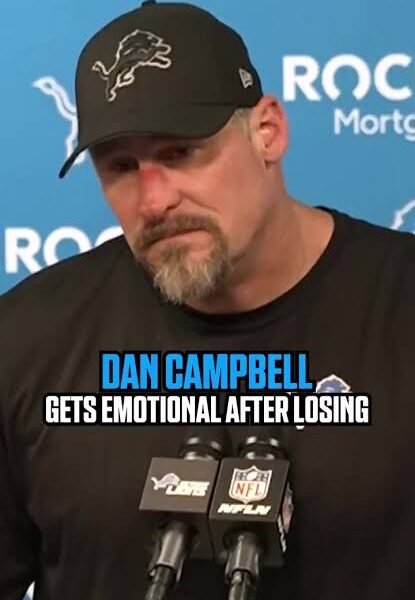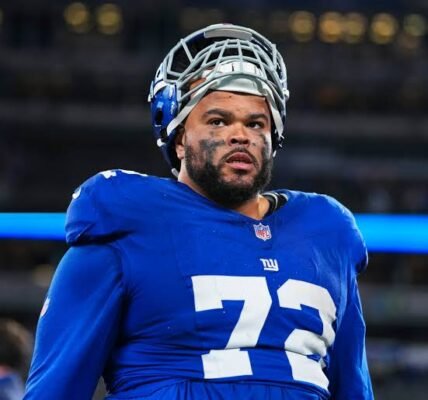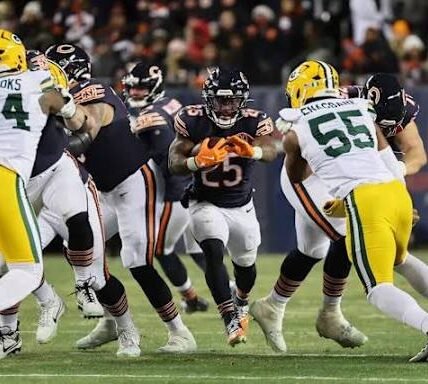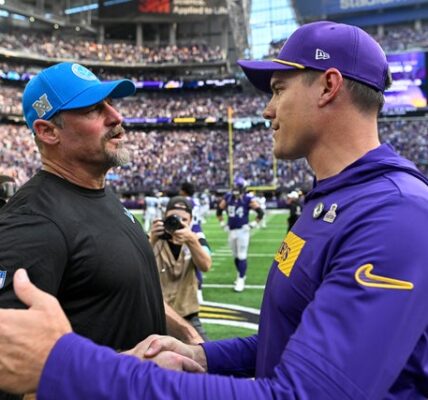Since Dan Campbell took over play-design and play-calling from offensive coordinator John Morton, Detroit has ridden a wave of ups and downs on offense. Campbell didn’t remove Morton from his role, but he did step into a more hands-on approach beginning in Week 10. That adjustment initially looked like a spark.
Against Washington, Detroit’s offense resembled its peak form from the Ben Johnson era: faster at the line, crisp communication, and a renewed rhythm that had been missing during their three-game losing streak. David Montgomery was heavily featured, Jameson Williams became a focal point in the passing game, and the Lions exploded for 546 total yards in a 44–22 blowout.
Week 11 in Philadelphia was the opposite story.
Detroit fell 16–9 in a game where the final score wasn’t nearly as concerning as how disjointed the offense looked. The Lions mustered only 317 total yards. Jared Goff threw for 255 yards, including a deep touchdown to Williams, but beyond that single play it was arguably one of the poorest outings of his career — a tipped-ball interception and a completion rate stuck at 38%.
The run game didn’t help much. Jahmyr Gibbs and Montgomery combined for just 66 yards, averaging 3.7 per carry. Even the ever-reliable Amon-Ra St. Brown struggled, pulling in only 2 of his 12 targets — a rarity for Detroit’s most consistent receiver.
Campbell acknowledged afterward that his own play-calling contributed to the sputtering performance.
He cited one example in particular:
Detroit faced a second-and-short, somewhere around second-and-3. Campbell dialed up a keeper to the left — a decision he immediately regretted. He explained that he was caught in the dilemma between taking a downfield shot or simply moving the chains. Looking back, he felt he should’ve either run again for an easy first down or chosen a quick, high-percentage passing concept.
“These are the things you pick up with experience,” Campbell said, noting that better sequencing would have helped the offense settle in and stay ahead of the sticks.
While the offense struggled, Detroit’s defense continued to play at a borderline elite level, even with multiple starters sidelined. For the Lions to take advantage of their playoff positioning — and their often-mentioned Super Bowl window — the offense needs to return to form.
At 6–4 and sitting just outside the NFC’s top seven, ESPN projects Detroit’s postseason odds as follows: 71% chance to make the playoffs, 34% chance to win the division, 2% to earn a first-round bye, and 10% to reach the Super Bowl.
Detroit now returns home, where it’s 3–1 this season, for a three-game stretch against the Giants, Packers, and Cowboys — all winnable matchups that could provide a reset for the offense and an opportunity for the entire team to play a clean, complete game.
Campbell believes that balanced performance is still coming.
He said the Lions have yet to deliver a fully complementary, three-phase effort. Games against Chicago and Washington were close, but still not quite what he envisions. Campbell insists that once the team finally puts everything together, their efficiency will jump significantly — even if occasional bumps remain.
In his words, the Lions have “weathered the storm,” and now it’s about fixing the mistakes, creating a solid plan, and performing better as a collective unit moving forward.




